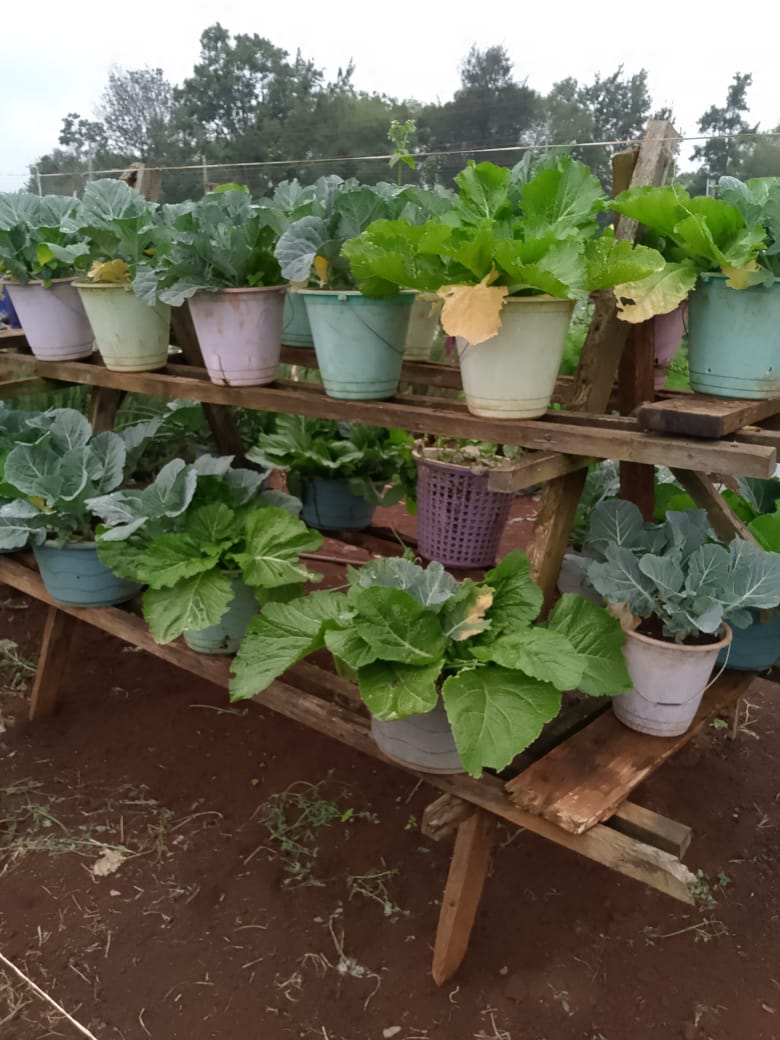
Here is a sample course outline for a Horticultural Crop course, which covers key topics and concepts related to the cultivation, management, and science of horticultural crops. The outline can be adapted depending on the level of study (undergraduate, diploma, etc.) and the specific focus of the course (general horticulture, specific crops, or practices).
Course Title: Horticultural Crop Production and Management
Course Duration: One semester (Approx. 14 weeks)
Course Objectives:
- To provide students with an understanding of the fundamental principles and practices involved in the cultivation of horticultural crops.
- To explore the physiological, agronomic, and environmental factors that affect horticultural crop growth.
- To familiarize students with common horticultural crops and their production practices.
- To develop skills in crop management, pest control, and sustainable practices for horticultural systems.
Week 1: Introduction to Horticulture
- Overview of Horticulture: Definition and importance of horticulture in agriculture and the economy.
- Classification of Horticultural Crops: Fruits, vegetables, nuts, herbs, and spices.
- Branches of Horticulture: Pomology, olericulture, floriculture, landscape horticulture.
- Global and Local Trends in Horticulture: Key crops and market demands.
Week 2: Plant Growth and Development
- Plant Physiology Basics: Photosynthesis, respiration, transpiration.
- Growth Stages: Germination, vegetative growth, reproductive growth.
- Environmental Factors Affecting Growth: Light, temperature, humidity, soil conditions.
- Plant Growth Regulators (PGRs): Types and roles of hormones in crop management.
Week 3: Soil Management for Horticultural Crops
- Soil Properties: Soil texture, structure, and pH.
- Soil Fertility and Amendments: Organic and inorganic fertilizers, composting, and mulching.
- Soil Testing: Importance and methods of soil analysis.
- Water Management: Irrigation systems and practices for efficient water use.
Week 4: Propagation Techniques in Horticultural Crops
- Vegetative Propagation: Cutting, grafting, budding, and layering.
- Sexual Propagation: Seed selection, germination, and nursery management.
- Seedling Production: Nursery design and management for different crops.
- Clonal Propagation: Importance in horticulture and techniques.
Week 5: Cultivation and Crop Establishment
- Land Preparation: Tillage, plowing, and soil preparation techniques.
- Spacing and Planting Systems: Row planting, square planting, intercropping.
- Crop Rotation and Companion Planting: Benefits and examples in horticultural systems.
- Transplanting Techniques: Best practices for transplanting seedlings.
Week 6: Fertilization and Nutrient Management
- Nutrient Requirements for Horticultural Crops: Macronutrients and micronutrients.
- Fertilizer Application Methods: Foliar feeding, fertigation, basal dressing.
- Nutrient Deficiencies and Toxicities: Symptoms and solutions.
- Integrated Nutrient Management: Combining organic and synthetic fertilizers.
Week 7: Pest and Disease Management
- Common Pests in Horticultural Crops: Insects, mites, and nematodes.
- Common Diseases in Horticultural Crops: Fungal, bacterial, and viral infections.
- Integrated Pest Management (IPM): Monitoring, biological control, and chemical control.
- Pesticide Safety: Application techniques and regulations.
Week 8: Post-Harvest Management and Storage
- Harvesting Techniques: Timing and methods of harvesting for different crops.
- Post-Harvest Physiology: Ripening, senescence, and shelf life.
- Storage and Handling: Cold storage, packaging, and transportation.
- Post-Harvest Diseases and Disorders: Control and prevention methods.
Week 9: Fruit Crop Production
- Types of Fruit Crops: Citrus, temperate fruits, tropical fruits, and berries.
- Cultivation Practices for Fruit Crops: Planting, pruning, thinning, and training.
- Harvesting and Yield Optimization: Techniques for maximizing fruit production.
- Common Issues in Fruit Production: Disease, pest management, and climatic considerations.
Week 10: Vegetable Crop Production
- Types of Vegetables: Leafy vegetables, root vegetables, fruiting vegetables, and legumes.
- Cultural Practices for Vegetables: Crop rotation, intercropping, and staking.
- Seed Selection and Transplanting: Best practices for vegetable crop establishment.
- Vegetable Harvesting: Timing, techniques, and quality control.
Week 11: Specialty Crops and Herbs
- Herbs and Spices: Culinary herbs (basil, mint, thyme) and medicinal herbs.
- Nutraceutical Crops: Crops with health benefits (e.g., garlic, turmeric).
- Organic Production of Specialty Crops: Sustainable practices for high-value crops.
- Management of Perennial Crops: Care for crops like asparagus, rhubarb, and artichokes.
Week 12: Sustainable Practices in Horticulture
- Organic Farming in Horticulture: Principles, certification, and challenges.
- Conservation Agriculture: No-till, minimum tillage, and crop residue management.
- Agroecology and Biodiversity: Sustainable systems for horticultural production.
- Climate Change and Adaptation: How horticulture adapts to changing climate patterns.
Week 13: Horticultural Economics and Marketing
- Market Trends in Horticultural Crops: Demand and supply analysis for fruits, vegetables, and herbs.
- Value-Added Products: Processing and packaging of horticultural produce.
- Farm to Market Chain: Logistics, marketing strategies, and retail considerations.
- Economic Sustainability: Cost-benefit analysis and profitability in horticulture.
Week 14: Case Studies and Practical Applications
- Case Studies of Successful Horticultural Operations: Local and global examples.
- Practical Fieldwork and Site Visits: Exposure to real-world horticultural production.
- Student Presentations on Selected Crops: In-depth analysis of a specific horticultural crop.
- Review and Course Conclusion: Recap key concepts, assessments, and future trends in horticultural crop production.
Assessment Methods:
- Assignments: Research papers, case studies, and crop management plans.
- Quizzes and Exams: Mid-term and final exams covering theoretical knowledge.
- Practical Exams: Demonstration of propagation, pest management, and post-harvest handling.
- Field Reports: Observations and reports from site visits or fieldwork.
References:
- Textbooks on horticultural crop production, soil science, and pest management.
- Research journals and articles related to sustainable horticulture and crop systems.
- Online resources and extension publications from agricultural universities.
This outline provides a comprehensive guide for students studying horticultural crop production, covering theoretical, practical, and applied aspects of the subject. It can be adapted to suit the specific goals of an academic program or the needs of a particular group of students.
- Teacher: Admin User
